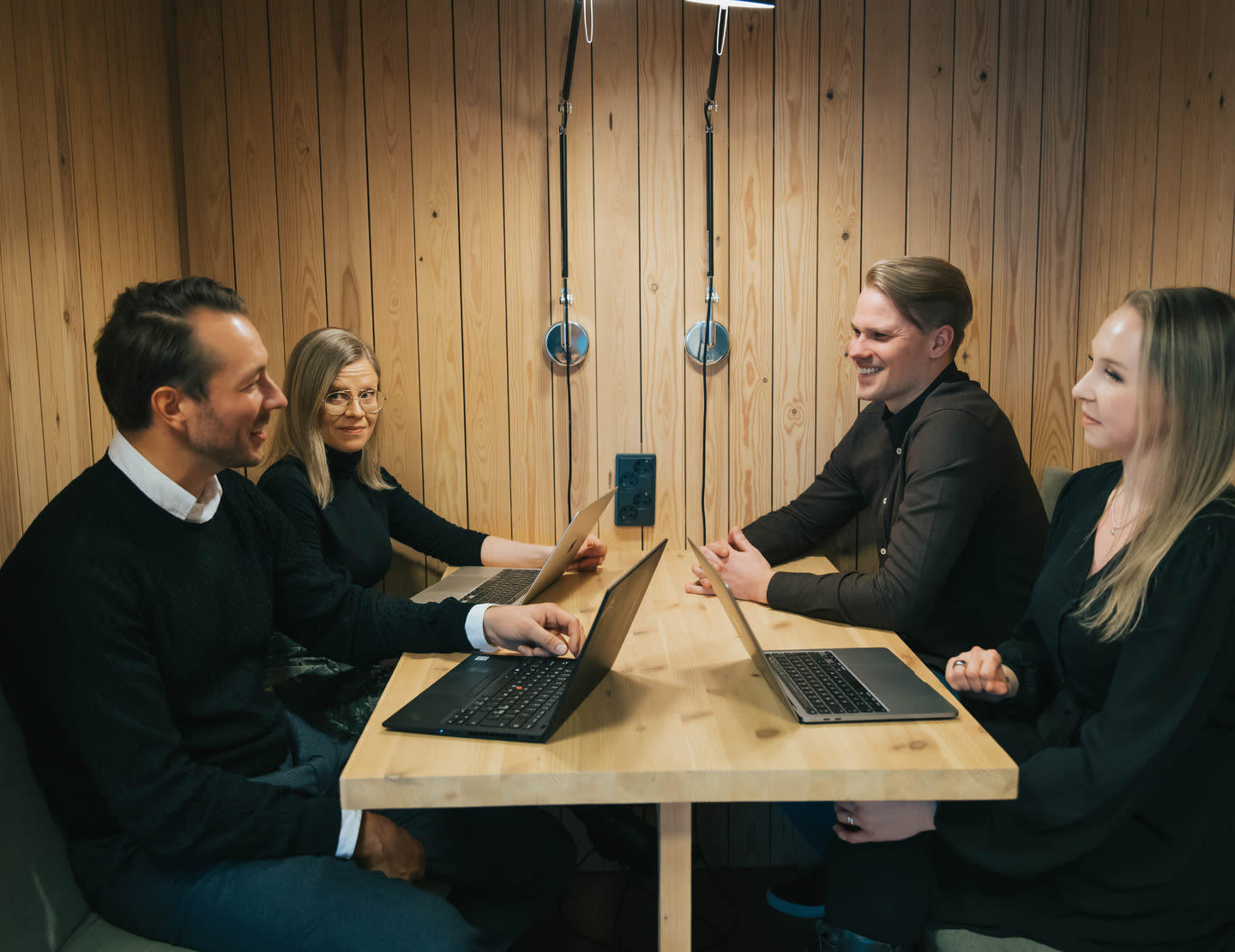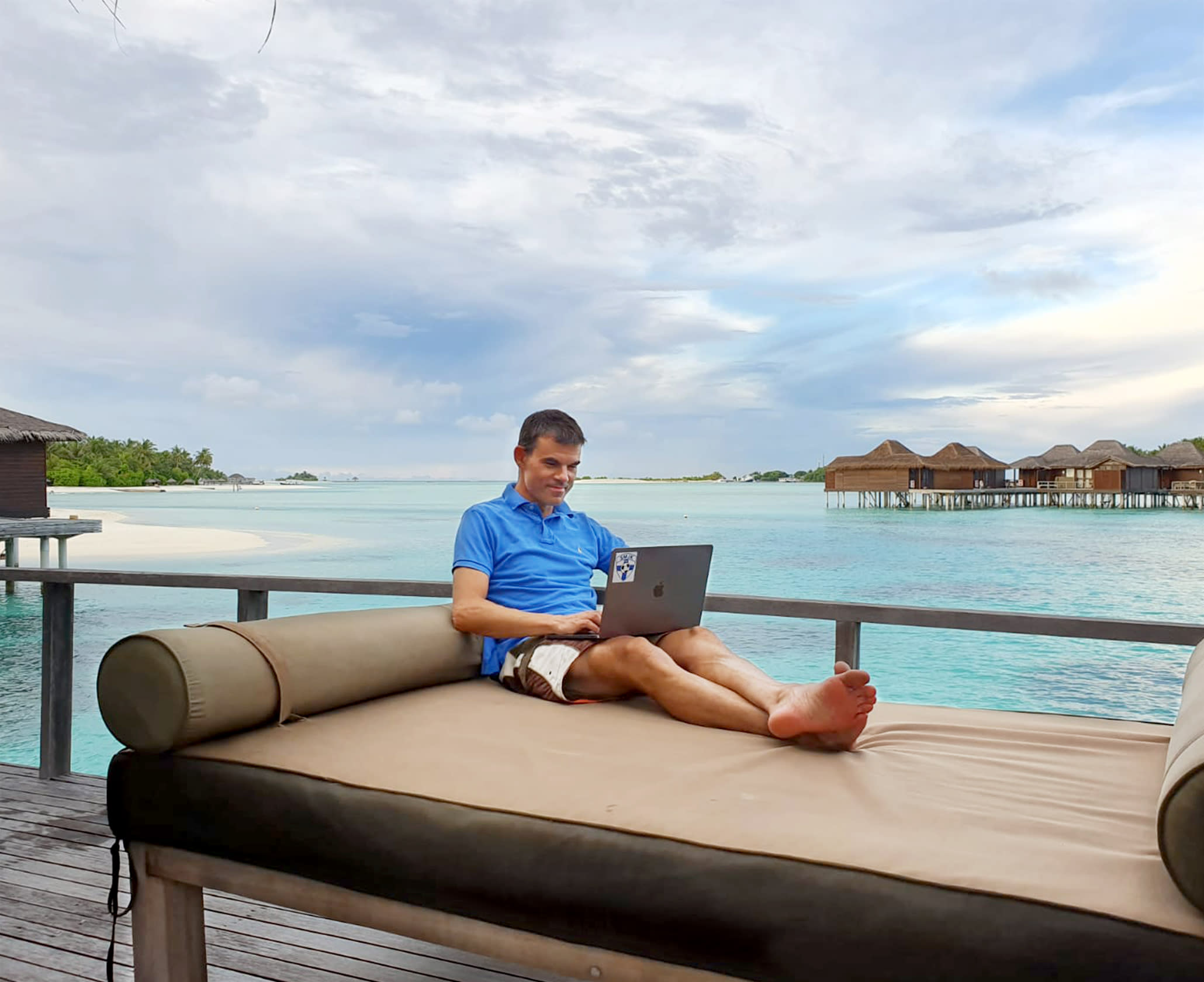Flexible culture drives well-being in work
Combining work and free time often ranks high on the employees' value scale. Flexibility is one of the basic pillars of our culture.


The coordination of work and free time rises high on the employees' value scale, often even to the first place. Flexibility is one of the basic pillars of modern working life. Finding a suitable balance between work and the rest of your life is also part of good working life skills: you have to give yourself time to recover so that your mind stays fresh and able to work. People are at their best in a good mood and rested. On the other hand, no one is solely responsible for their own recovery, but the employer's attitude towards flexibility is of great importance in terms of well-being.
At HiQ, different arrangements regarding working time, place and absences are commonplace. More and more employees are choosing to work reduced hours, and it is usually easy to arrange. Studies, hobbies, a busy family life or an otherwise hectic life situation are typical grounds for reduced working hours, but the reasons are manifold. Many people working reduced working hours work 80% of the working time, leaving one extra day off in the working week; some of them, on the other hand, choose to work five days a week, but keep the days slightly shorter. In addition, some students choose to continue working as part-time workers even after graduation, because it enables, for example, spontaneous travel.
"For me, working a four-day work week was already an important requirement from a future employer when applying for a job. At HiQ, this was well received and agreeing on working hours has gone smoothly," says Pekka, Software Developer at HiQ.
With the corona pandemic, remote working has become the new norm in areas other than the IT sector as well. At HiQ, the possibility of remote working has been part of the culture for a long time, as long as the customer work has allowed it, and our history can contain some remote working adventures. Sometimes it has been surfing in southern Europe, sometimes on the other side of the globe on the band's world tour. Many feel that they also need a longer period in the sun during Finland's gloomy winter months. Working from abroad is usually easy, especially in the EU region.


"When the part-time arrangements of some colleagues seemed to work well, I was also encouraged to ask my supervisor about the possibility of a four-day work week. My manager gave the green light and HiQ seems to have a positive attitude towards flexible work arrangements anyway, so it was easy to get through the change", describes Service & Software Developer Kirsi.
Flexibility can also be seen, for example, in scheduling vacations. Some people like to spend their summer holidays traditionally in July, while others prefer to spend a longer period in the winter abroad. At HiQ, time off is also accrued for self-development. A few days off sprinkled here and there will improve endurance and increase the good feeling.
In expert work that requires concentration, mental well-being is key. The employer's flexibility and consideration of individual needs and wishes supports coping and keeps job satisfaction high. We all have more important things in our lives than work and different ways to maintain a fresh state of mind. You can and should still enjoy your work, but it is best achieved when the balance between work and free time is just right.
"When I finish work on Thursday and turn on the out-of-office message, it feels good to be able to spend a long weekend. In three days, I have time to enjoy leisurely activities, do housework, take care of things, and of course rest," sums up Kirsi.
Would you be interested in becoming part of HiQ?
You can contact Tiina Laaksonen directly, at tiina.laaksonen@hiq.fi. See also all our open positions.
Contact for more information
